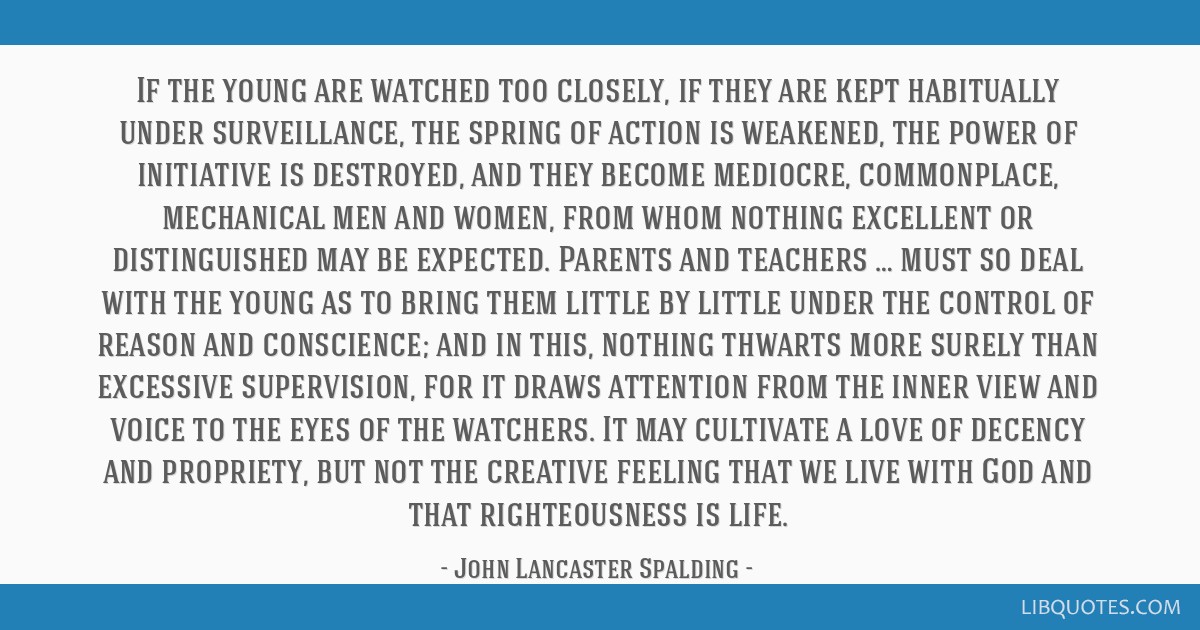If the young are watched too closely, if they are kept habitually under surveillance, the spring of action is weakened, the power of initiative is destroyed, and they become mediocre, commonplace, mechanical men and women, from whom nothing excellent or distinguished may be expected. Parents and teachers … must so deal with the young as to bring them little by little under the control of reason and conscience; and in this, nothing thwarts more surely than excessive supervision, for it draws attention from the inner view and voice to the eyes of the watchers. It may cultivate a love of decency and propriety, but not the creative feeling that we live with God and that righteousness is life.
p. 257-258 - Aphorisms and Reflections (1901)























